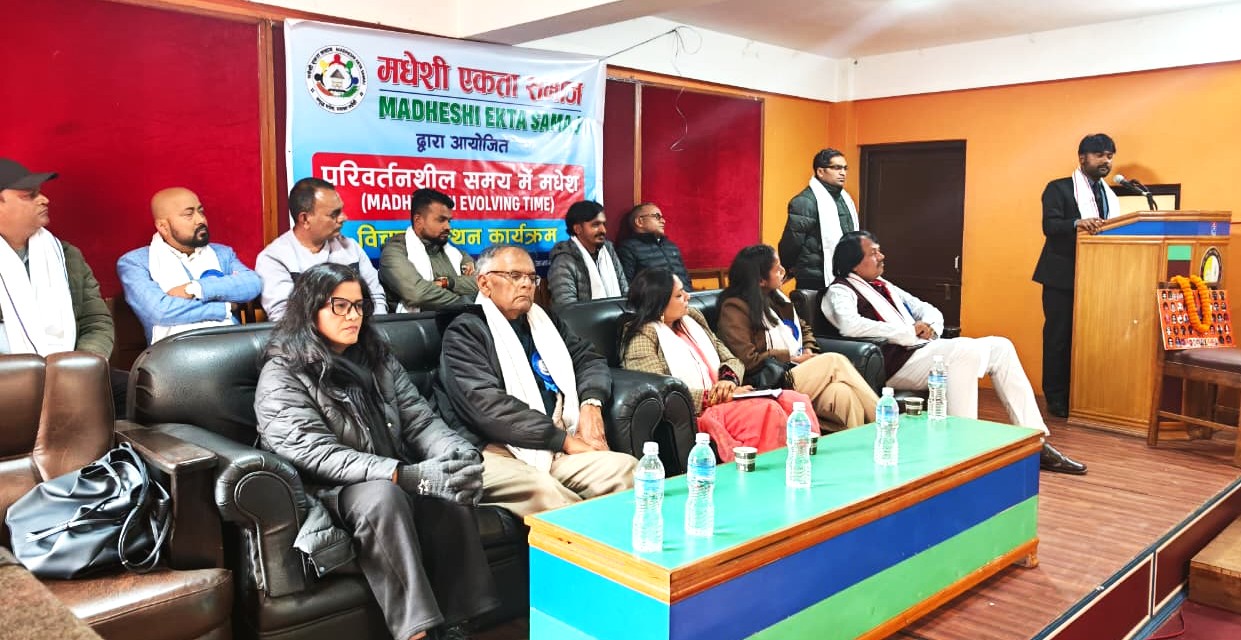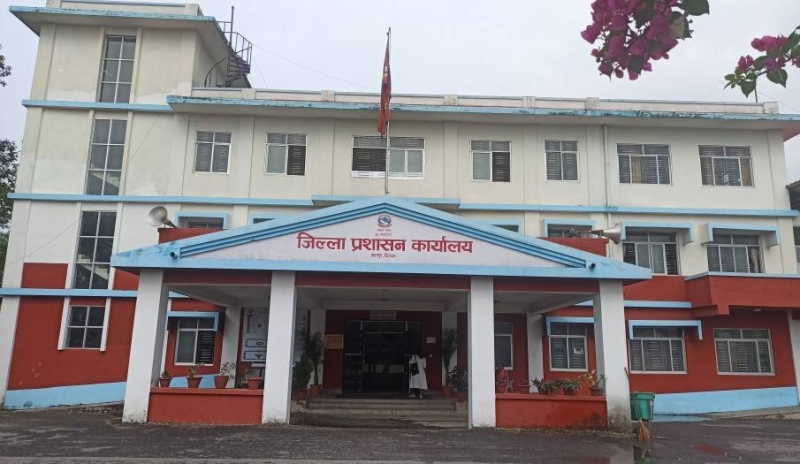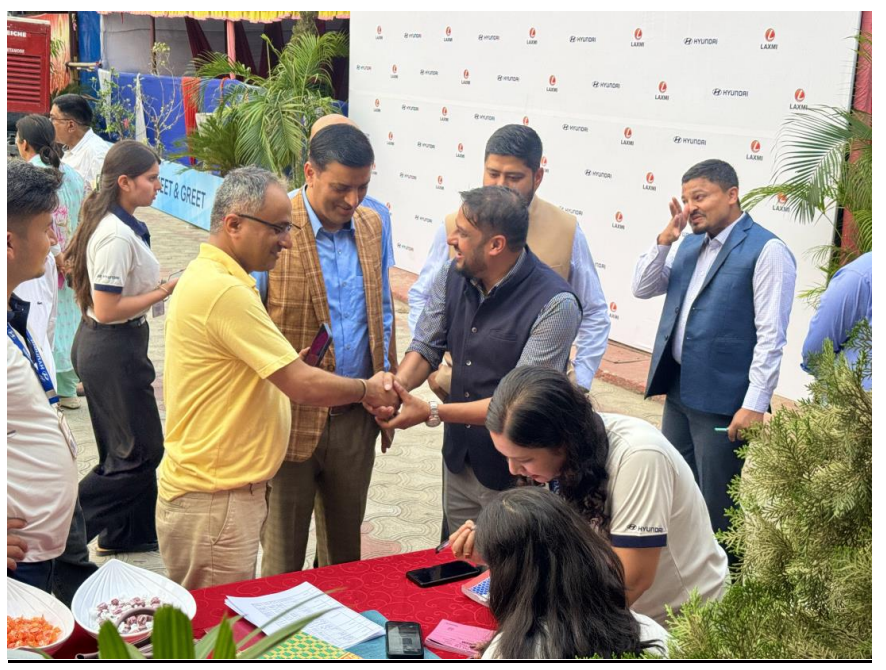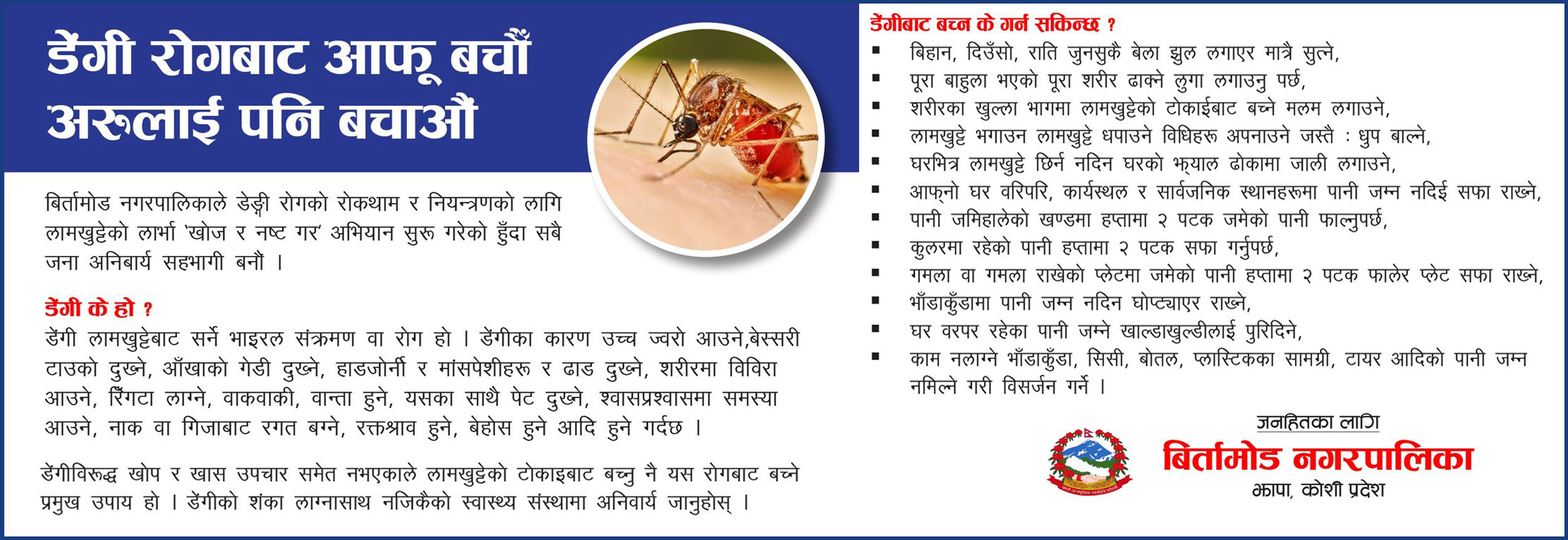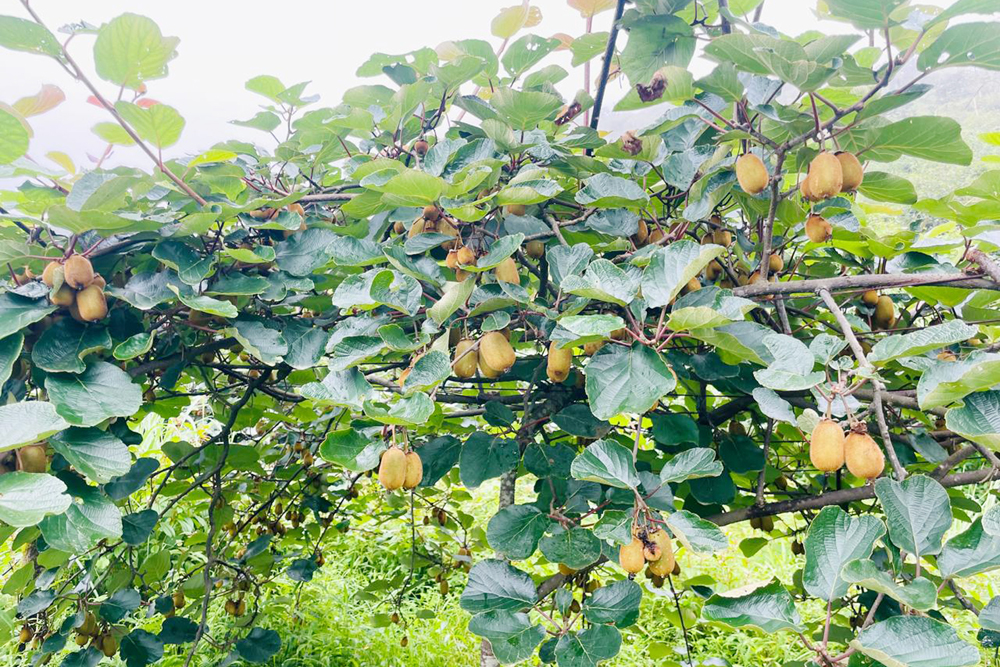
Ilam: The commercial agricultural work started a decade ago by a group of political and business youths in Sandakpur, in the eastern-northern part of the district, has started yielding results. A group of seven youths started cultivating Kiwi and Lothsalla, believing that corruption would be reduced if politicians also joined the business.
Now realizing that the future of Nepal lies in the agricultural sector, those seven youths formed a group and operated Saptarangi Multi-Purpose Company Pvt. Ltd. They planted Kiwi and Lothsalla (Texas Marie) on 300 plants of land in Sandakpur Rural Municipality-2 of Ilam. “Out of 300 plantations, 150 plantations are being planted with Kiwi and 150 plantations are planted with Lothsalla,” says CP Kadaria, the president of the company.
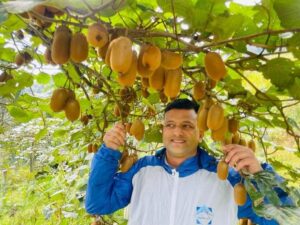
In a coffee chat with some journalists on Sunday afternoon, Kadaria said, ‘We are engaged in agricultural work to reduce unemployment, connect politicians with production and introduce technology in the country.’ Young businessmen Tejmani Prasain, Kamal Prasad Kadaria, Dushyant Bhattarai, Shri Prasad Sitaula, Iswari Prasad Tiwari and Jhalak Bahadur Rai are cooperating in agricultural work along with the president Kadaria of Saptarangi Multipurpose Company Pvt. Ltd.
Agriculture accounts for 24 percent of the country’s gross domestic product. Stating that the government also considers agriculture as the main basis to achieve the goal of sustainable development, Kadaria says, “We call ourselves an agricultural country, but we have become import-oriented in everything.”
According to him, investments have been made in the agricultural sector to replace the country’s imports and to increase its exports. Started in 2072, Kiwi and Lothsalla have so far invested 35 million rupees. From this year onwards, the company’s directors have a goal of stopping investment in the said company and making it through production and bringing it to BEP in the next two years.
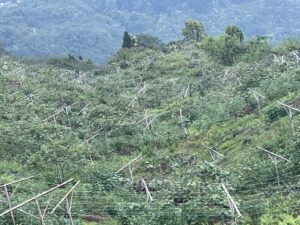
According to Kadaria, the market and demand is good because kiwi is eaten as a fruit and is used to make medicine for the treatment of Lothsalla cancer. According to Kadaria, if a kiwi plant is well taken care of after planting, it will start producing after three years and it can be produced at the rate of 50 kg annually for 35 to 50 years.
Reciting the statistics that last year 7 lakh kg of kiwi was produced in the hilly districts of the east, Kadaria says, “1.5 lakh kg was produced only in Ilam and it seems that the production will continue to increase.”
It is his experience that even though Nepali farmers produce kiwi, they have to sell it cheaply due to storage problems. He said that ‘cold chain’ is necessary to bring it from the production site to the market, but since we cannot manage it, we have to sell kiwis cheaply during the season.
“Due to the lack of proper arrangements for storage, there is a problem that the kiwi produced by the farmers deteriorates quickly, as a result of which the farmers are not getting the price, and the market has also declined,” said Kadaria, the president of the company.
In off-seasons, Kiwi is imported from New Zealand to Nepal, says Kadaria. According to him, Kiwi is produced in New Zealand and China the most in the world. “The taste of kiwi produced here is good”, he added, “We are also talking to various agencies with the idea of producing kiwi and bringing it to the world market.”
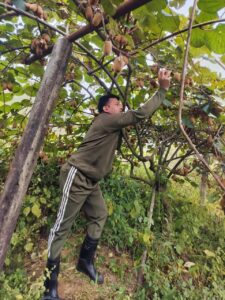
Kadaria suggests that the government should focus on building suitable storage houses to protect the farmers’ produce. “If the state wants to replace imports, it is necessary to make special investments in the agricultural sector,” he said, “real farmers have not been able to use the facilities provided by the state.”
Pollination plays an important role in increasing kiwi production. Kadaria said that there is a challenge in kiwi cultivation due to wind and bee pollination in our Nepal. He suggested that it is necessary to bring the technology adopted by China and New Zealand to Nepal for pollination.


